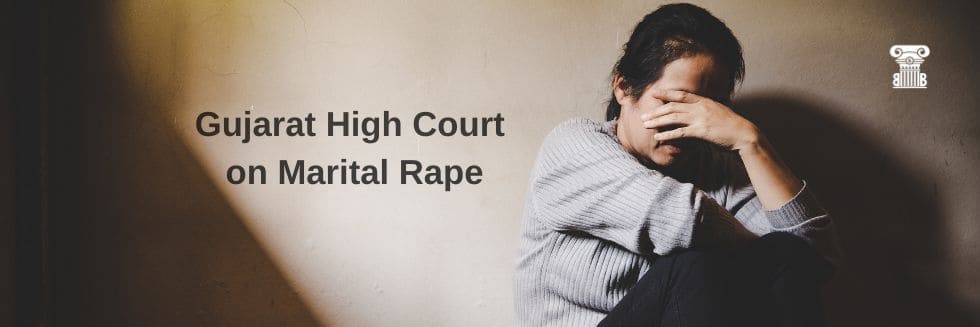Marital rape, a term used to describe non-consensual sexual intercourse within a marriage i.e., between a husband and a wife, is a deeply entrenched issue in Indian society. Despite being a grave violation of a woman’s rights, it is not recognised as a criminal offence under the Indian Penal Code, 1860 (IPC).
The patriarchal nature of Indian society ingrains it in the minds of men that women are expected to comply when their husbands demand sex. This mindset, coupled with the lack of legal recognition of marital rape, has led to a culture of silence and acceptance around this issue.
“An analysis of the data indicates that an estimated 99.1 per cent of sexual violence cases go unreported and that the average Indian woman is 17 times more likely to face sexual violence from her husband than from others. Despite the data, most people continue to regard “marital rape” with disbelief.”
The Indian Penal Code, of 1860 provides a legal framework for dealing with rape under Section 375, but it includes an exception clause that states, “sexual intercourse by a man with his wife, the wife not being under 15 years of age, is not rape”. This exception clause has sparked significant debate in the Indian Supreme Court, legislature, and society due to its implications.
“The IPC’s provisions on marital rape are as follows:
- Rape of a wife aged between 12 – 15 years, punishable by imprisonment up to 2 years or a fine, or both.
- Rape of a wife below 12 years of age, punishable by imprisonment not less than 7 years, extendable to life imprisonment, and fine.
- Rape of a wife above 15 years of age is not punishable under the law.”
The case at hand:
In the case of Anjanaben v. State of Gujarat, The Gujarat High Court delved into the nuances of marital rape concerning India, the brief facts of the case were that the complainant married the accused’s son in 2022 and moved into her marital home with her husband, mother-in-law, and father-in-law. They had two sons. The father-in-law allegedly persuaded the husband of the complainant to film and share explicit videos of the complainant for a porn site to realise money to save their hotel from being sold. Despite her objections, the husband complied, and the mother-in-law supported this. The complainant also alleges that the father-in-law molested her when they were alone. Feeling helpless, she sought legal help and filed an FIR against all the accused.
On the charge of Section 376 against the husband, the court observed that following the establishment of the Republic, India’s governance is dictated by its Constitution. “This document upholds the principle of gender equality, viewing women as equal to men and marriage as a partnership of equals. It does not portray women as inferior to men in any way. The Constitution assures fundamental rights under Articles 14, 15, 19, and 21. These rights encompass living with dignity, personal freedom, physical integrity, sexual autonomy, reproductive choices, privacy, and freedom of speech and expression. The Constitution ensures that these rights are equally distributed and protected for all.”
The court cited the illustration of other countries
“Marital rape is recognized as a crime in 50 states of America, 3 states in Australia, as well as in New Zealand, Canada, Israel, France, Sweden, Denmark, Norway, the Soviet Union, Poland, Czechoslovakia, and several other countries. The United Kingdom, whose legal code has significantly influenced the current code, has also eliminated the marital rape exemption following a ruling by the House of Lords in the case of R v. R in 1991. Consequently, the code, which the then rulers originally established, has itself done away with the special provision previously granted to husbands.”
The court observed that the protection which is accorded to the acts of the husband which in ordinary circumstances would have amounted to rape is bad in the eyes of the law:
“Therefore, a man sexually assaulting or raping a woman is amenable to punishment under Section 376 of IPC. In most cases of such a nature, the usual practice is that if the man is the husband, performing the same acts as another man, he is exempted. In my considered view, the same cannot be countenanced. A man is a man; an act is an act; rape is a rape, be it performed by a man the “husband” on the woman’s “wife”.”
The court also shed light on the grim situation relating to gender violence in India, the court opined that “Violence based on gender often remains hidden and is perpetuated by a culture of silence. The root causes of violence against women are deeply ingrained power imbalances between the sexes, which normalize violence and make it acceptable. These imbalances are exacerbated by societal and cultural norms, financial dependency, poverty, and alcohol use, among other factors. In India, the perpetrators are often known to the victim, and the social and economic repercussions of reporting such crimes are significant. Women’s general financial reliance on their families and the fear of social exclusion serve as major deterrents to reporting any form of sexual violence, abuse, or unacceptable behaviour. As a result, the actual rate of violence against women in India is likely much higher than reported statistics indicate, and women may continue to endure hostility and live in violent environments. This silence must be shattered. In this endeavour, men, perhaps more so than women, have a responsibility and role in preventing and fighting against violence towards women.”
Conclusion
In conclusion, the issue of marital rape in India is a complex and contentious one. The Indian Penal Code‘s exception clause, which does not recognize sexual violation within a marriage as rape, has sparked significant debate. The case of Anjanaben v. State of Gujarat highlighted the urgent need for reform, as it revealed the grim reality of gender violence often hidden by a culture of silence. The court’s observations underscored the importance of recognizing and upholding the fundamental rights guaranteed by the Constitution, including gender equality and personal freedom. The court also pointed out the global trend towards criminalizing marital rape, urging India to reconsider its stance. The verdict emphasized that an act of rape remains a crime, regardless of the relationship between the perpetrator and the victim. This case serves as a stark reminder of the urgent need for legal reform to protect the rights and dignity of women in India.
This article is written and submitted by Devam Krishnan during his course of internship at B&B Associates LLP. Devam is a 4th year year B.A.LL.B (Hons.) student at NUSRL, Ranchi.





